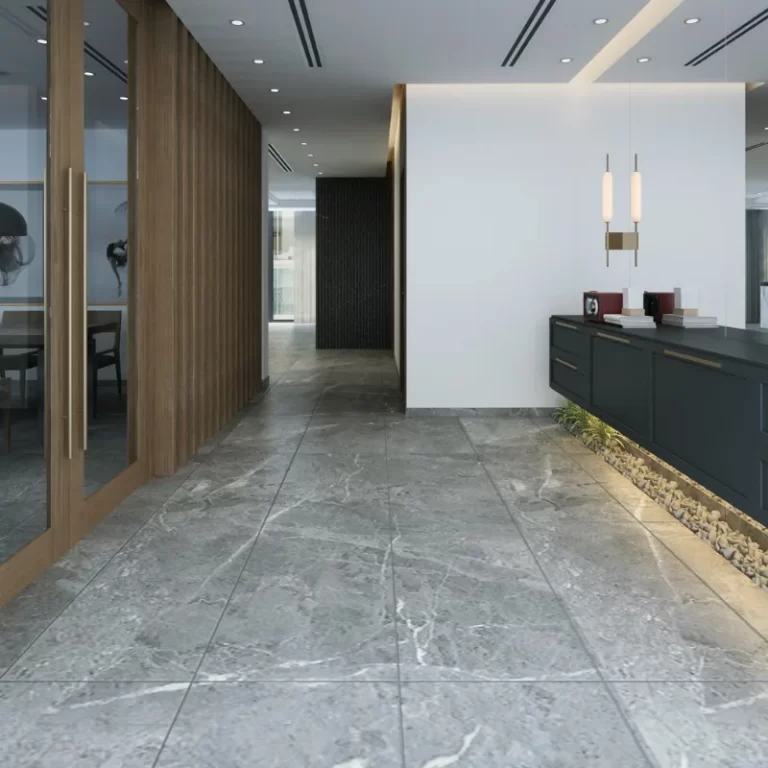The Most Common Reasons for Tiles Popping Up and Prevention Tips
Tiles popping up, also known as tile tenting, is a common issue that can occur in both residential and commercial spaces. This problem not only affects the aesthetics of your flooring but can also pose safety hazards. Understanding the reasons behind tile popping and how to prevent it can save you time, money, and frustration. Here are the most common causes and prevention tips:

1. Improper Subfloor Preparation
Reason: If the subfloor is uneven, has debris, or isn’t properly leveled, tiles may not adhere correctly. Over time, this can cause them to lift or pop.
Prevention Tip: Ensure the subfloor is clean, level, and free of cracks or moisture before installation. Use a leveling compound if necessary.
2. Lack of Expansion Joints
Reason: Tiles expand and contract with temperature and humidity changes. Without proper expansion joints, the tiles can push against each other, causing them to pop.
Prevention Tip: Always include expansion joints during installation, especially in large areas or rooms with fluctuating temperatures.
3. Poor Adhesive Application
Reason: If the adhesive is applied unevenly, too thinly, or with the wrong type of adhesive for the tile, it can fail to bond properly, leading to tiles lifting.
Prevention Tip: Use the correct adhesive for the type of tile and surface. Apply adhesive evenly using the recommended trowel size for full coverage.
4. Moisture Issues
Reason: Excess moisture in the subfloor or adhesive can weaken the bond between the tile and the surface, causing tiles to pop.
Prevention Tip: Test the subfloor for moisture before installation. Use a moisture barrier if necessary, and allow adhesives to cure properly.
5. Heavy Load or Impact
Reason: Dropping heavy objects or applying excessive pressure on tiles can cause them to crack or pop.
Prevention Tip: Avoid placing extremely heavy objects on tiled surfaces. Use protective pads under furniture legs to distribute weight evenly.
6. Incorrect Tile Spacing
Reason: Tiles installed too close together without proper spacing can push against each other during expansion, leading to popping.
Prevention Tip: Use tile spacers to maintain consistent gaps between tiles, allowing room for expansion.
7. Temperature Fluctuations
Reason: Extreme temperature changes can cause tiles to expand and contract, leading to stress on the adhesive bond.
Prevention Tip: Install tiles in a climate-controlled environment when possible. Use flexible adhesives and grouts designed to handle temperature changes.
8. Low-Quality Materials
Reason: Cheap or substandard tiles, adhesives, or grouts may not withstand daily wear and tear, leading to premature failure.
Prevention Tip: Invest in high-quality materials from reputable brands to ensure durability and longevity.
9. Improper Curing Time
Reason: Walking on or applying pressure to tiles before the adhesive has fully cured can weaken the bond.
Prevention Tip: Follow the manufacturer’s recommended curing time before using the tiled area.
10. Structural Movement
Reason: Shifting or settling of the building’s foundation can cause tiles to crack or pop.
Prevention Tip: Address any structural issues before installing tiles. Consider using crack isolation membranes in areas prone to movement.
Conclusion
Tile popping is often preventable with proper installation techniques, high-quality materials, and attention to environmental factors. If you’re unsure about DIY tile installation, it’s always best to consult or hire a professional to ensure a long-lasting and secure result. Regular maintenance and addressing issues early can also help keep your tiles in place for years to come.







